David McRaney's Blog, page 7
July 11, 2023
YANSS 263 – How to create better online environments in which arguing is more likely to change people’s minds
Deliberation. Debate. Conversation. Though it can feel like that’s what we are doing online as we trade arguments back and forth, most of the places where we currently gather make it much easier to produce arguments in isolation rather than evaluate them together in groups. The latest research suggests we will need much more of the latter if we hope to create a new, modern, functioning marketplace of ideas. In this episode, psychologist Tom Stafford takes us through his research into how to do just that.
Listen on Apple Listen on Spotify Listen on GoogleRSS – Simplecast – Amazon Music – Audible
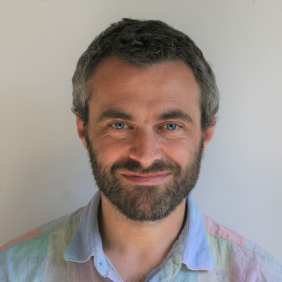 Dr. Tom Stafford
Dr. Tom StaffordOur guest in this episode is psychologist Tom Stafford whose latest research takes lessons learned from the Wason Selection Task, a problem 90 percent of people get wrong in isolation but that most people get right when allowed to discuss their reasoning in groups, and applies them to virtual conversation spaces with fascinating results.
Tom Stafford studies learning and decision making at the University of Sheffield. “Much of my research looks at risk and bias, and their management, in decision making. I am also interested in skill learning, using measures of behaviour informed by work done in computational theory, robotics and neuroscience. More recently a strand of my research looks at complex decisions, and the psychology of reason, argument and persuasion.”
He is the author of Mind Hacks and For Argument’s Sake, and he helps run the blog Mind Hacks. He’s written for BBC Future, The Guardian, Lifehacker, and many other publications.
He also created The Tea Taste Test – explaining why statistics are important to psychology, using a controversy of how to make a cup of tea.
Apple Podcasts – RSS – Google Podcasts – Spotify
RSS – Simplecast – Amazon Music – Audible
June 29, 2023
YANSS 262 – The drives and motivations of those who sell modern snake oils and engage in age-old quackery
At the peak of COVID-19, Matthew Hongoltz-Hetling set out to write a book about the widespread pushback against masks and vaccines as away to discuss the rise of the medical freedom movement in America. But after meeting a series of people within that movement his efforts took a sharp turn into the motivations, tribulations, and personal lives of the people who sell miracle cures and dietary supplements, skirting the law when they can, and heading to jail when they can’t. The book is titled, If It Sounds Like a Quack, and it is a deep dive into the marketplace of snake oils and magical procedures sold by people who each claim to have found the one true cure for any and everything that could ever ail you.
Listen on Apple Listen on Spotify Listen on GoogleRSS – Simplecast – Amazon Music – Audible

— OFFICIAL DESCRIPTION OF THE BOOK–
A Pulitzer Prize finalist’s bizarre journalistic journey through the world of fringe medicine, filled with leeches, baking soda IVs, and, according to at least one person, zombies.
It’s no secret that American health care has become too costly and politicized to help everyone. So where do you turn if you can’t afford doctors, or don’t trust them? In this book, Matthew Hongoltz-Hetling examines the growing universe of non-traditional treatments — including some that are really non-traditional.
With costs skyrocketing and anti-science sentiment spreading, the so-called “medical freedom” movement has grown. Now it faces its greatest challenge: going mainstream. In these pages you’ll meet medical freedom advocates including an international leech smuggler, a gold miner-turned health drink salesman who may or may not be from the Andromeda galaxy, and a man who says he can turn people into zombies with aerosol spray. One by one, these alternative healers find customers, then expand and influence, always seeking the one thing that would take their businesses to the next level–the support and approval of the government.
Should the government dictate what is medicine and what isn’t? Can we have public health when disagreements over science are this profound? No, seriously, can you turn people into flesh-eating zombies? If It Sounds Like a Quack asks these critical questions while telling the story of how we got to this improbable moment, and wondering where we go from here. Buckle up for a bumpy ride…unless you’re against seatbelts.
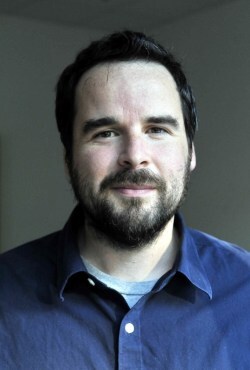 Matthew Hongoltz-Hetling
Matthew Hongoltz-HetlingMatt Hongoltz-Hetling is a George Polk Award–winning journalist and author of A Libertarian Walks Into a Bear and If It Sounds Like a Quack.
In Matt’s words, he could be described chronologically as a “stockboy to server to business owner to poker player to cabbie to social worker to Pulitzer finalist & award-winning journalist.”
As an international journalist driven by narrative features and investigative work, he has ranged from Maine’s stately Governor’s Mansion to the mud hut of a witch doctor in Sierra Leone. When he writes, my goal is to immerse the reader into the subject’s world while telling a story with nuance and meaning. Matt enjoys enjoy finding unexplored topics, and bringing fresh perspective to existing topics.
My first book was published in September of 2020. It features the strange-but-true story of Grafton, NH, a small town that became the nexus of a collision between bears, libertarians, guns, doughnuts, parasites, firecrackers, taxes and an angry llama.
Apple Podcasts – RSS – Google Podcasts – Spotify
RSS – Simplecast – Amazon Music – Audible
June 11, 2023
YANSS 261 – How to fix any bureaucracy by hacking its networks of human behavior from the inside
Marina Nitze is a professional fixer of broken systems – a hacker, not of computers and technology, but of the social phenomena that tend to emerge when people get together and form organizations, institutions, services, businesses, and governments. In short, she hacks bureaucracies and wants to teach you how to do the same. In this episode she sits down to share a variety of the insights from her book Hack Your Bureaucracy.
Listen on Apple Listen on Spotify Listen on GoogleStitcher – RSS – Soundcloud – Simplecast – Amazon Music – Audible
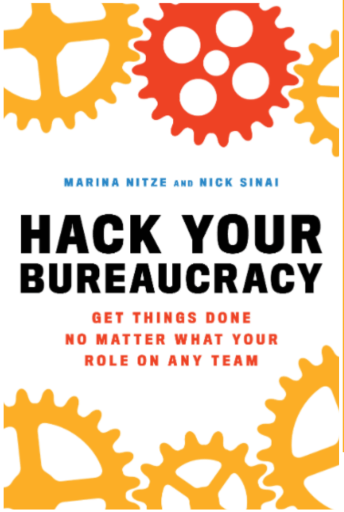
— OFFICIAL DESCRIPTION OF THE BOOK–
Whether you just started your first entry-level job, run the entire company, or just feel trapped by your condo association bylaws, it’s time to learn how to get big things done. From local government to the White House, Harvard to the world of venture capital, Marina Nitze and Nick Sinai have taken on some of the world’s most challenging bureaucracies—and won.
Now, they bring their years of experience to you, teaching you strategies anyone can use to improve your organization through their own stories and those of fellow bureaucracy hackers. Regardless of your industry, role, or team, Hack Your Bureaucracy shows how to get started, take initiative on your own, and transform your ideas into impact.
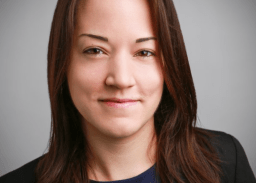 Marina Nitze
Marina NitzeMarina Nitze, co-author of the new book Hack Your Bureaucracy, is currently a partner at Layer Aleph, a crisis response firm that specializes in restoring complex software systems to service. Marina is also a fellow at New America’s New Practice Lab, where she works on improving America’s foster care system through the Resource Family Working Group and Child Welfare Playbook. Marina was most recently the Chief Technology Officer of the U.S. Department of Veterans Affairs under President Obama, after serving as a Senior Advisor on technology in the Obama White House and as the first Entrepreneur-in-Residence at the U.S. Department of Education. She serves on the advisory boards of Foster America, Smartsheet, and Think of Us; created TaskTackler, the personal productivity app for Type-A personalities; and previously authored the book Business Efficiency for Dummies. She lives in Seattle, WA.
Apple Podcasts – Stitcher – RSS – Google Podcasts – Soundcloud – Simplecast – Amazon Music – Audible – Spotify
May 29, 2023
YANSS 260 – How to escape life loops, deal with trauma, and build the psychological momentum required to get yourself unstuck
Feeling stuck? Can’t build momentum to escape all the loops keeping you from moving forward? Our guest in this episode is professor, author, therapist, and speaker Britt Frank, a trauma specialist who treats people with unique and powerful techniques and approaches which help clients to get out of the feeling of being stuck.
Listen on Apple Listen on Spotify Listen on GoogleStitcher – RSS – Soundcloud – Simplecast – Amazon Music – Audible
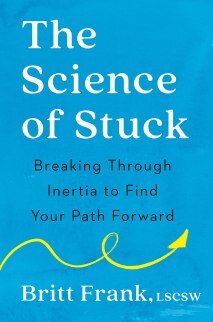
In the show, we nerd out with Britt about how hard it is to be a person, and though this interview is supposed to be about her new book – “The Science of Stuck: Breaking Through Inertia to Find your Path Forward” – at least of half of this interview turned out to be was wide-ranging conversation chasing down many nested tangents about everything from procrastination to somatic markers to trauma to the multitudes of the self and more.
— OFFICIAL DESCRIPTION OF THE BOOK–
A research-based tool kit for moving past what’s holding you back—in life, in love, and in work.
We all experience stuckness in our lives. We feel stuck in our relationships, career paths, body struggles, addiction issues, and more. Many of us know what we need to do to move forward—but find ourselves unable to take the leap to make it happen. And then we blame and shame ourselves, and stay in a loop of self-doubt that goes nowhere.
The good news is you’re not lazy, crazy, or unmotivated. In this empowering and action-oriented guide, you’ll discover why we can’t think our way forward—and how to break through what’s holding us back. Using an eclectic approach and a customizable plan that’s as direct or as deep as you want, this life-changing guide empowers you to:
• break old habits and patterns
• gain perspective on pain and trauma from the past
• free yourself from the torturous “why” questions
• take control of your choices to create the life you want
Bringing together research-backed solutions that range from shadow work to reparenting, embodied healing, and other clinical practices, along with empowering personal stories, this book is a hands-on road map for moving forward with purpose, confidence, and the freedom to become who you’re truly meant to be.
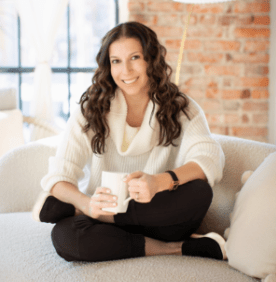 Britt Frank
Britt FrankBritt Frank is a therapist, teacher, speaker, and trauma specialist who is committed to dismantling the mental health myths that keep us feeling stuck and sick.
Her work focuses on empowering people to understand the inner mechanisms of their brains and bodies. When we know how things work, the capacity for choice is restored and life can and does change.
Whether she’s leading a workshop, teaching a class, or working individually with private clients, Britt’s goal is to educate, empower, and equip people to transform even their most persistent and long-standing patterns of thinking and doing.
This is a link to her Instagram.
Links and SourcesApple Podcasts – Stitcher – RSS – Google Podcasts – Soundcloud – Simplecast – Amazon Music – Audible – Spotify
May 28, 2023
YANSS 259 – How to become better at thinking about your own thinking so you can harness the power of knowing what you don’t know
How to manage procrastination according to Margaret Atwood, how to work around your first-instinct fallacy, the upsides of imposter syndrome, the best way to avoid falling prey to the Dunning-Kruger effect, how to avoid thinking like a preacher, prosecutor, or politician so you can think like a scientist instead – and that’s just the beginning of the conversation in this episode with psychologist, podcast host, and author Adam Grant.
Listen on Apple Listen on Spotify Listen on GoogleStitcher – RSS – Soundcloud – Simplecast – Amazon Music – Audible
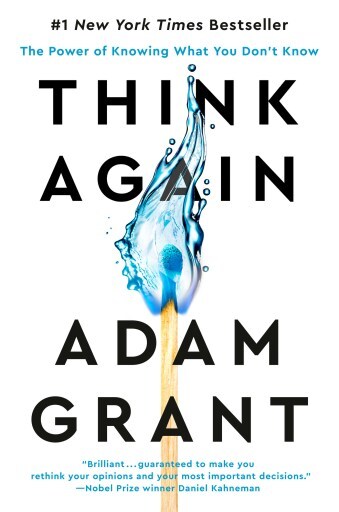
In the show, we discuss both his new book – Think Again: The Power of Knowing What you Don’t Know – and his TED Original Podcast, WorkLife, in which he interviewed Margaret Atwood, the author of The Handmaid’s Tale, to learn how she deals with the constant allure of social media and streaming videos in a future where giving in to procrastination is easier than it has ever been.
In the show, you’ll hear portions of that interview followed by a lengthy interview with Grant about his new book in this all-over-the-place, extensive exploration of how to rethink your own thinking.
— OFFICIAL DESCRIPTION OF THE BOOK–
“Intelligence is usually seen as the ability to think and learn, but in a rapidly changing world, there’s another set of cognitive skills that might matter more: the ability to rethink and unlearn.
In our daily lives, too many of us favor the comfort of conviction over the discomfort of doubt. We listen to opinions that make us feel good, instead of ideas that make us think hard. We see disagreement as a threat to our egos, rather than an opportunity to learn. We surround ourselves with people who agree with our conclusions, when we should be gravitating toward those who challenge our thought process. The result is that our beliefs get brittle long before our bones. Intelligence is no cure, and it can even be a curse: there’s evidence that being good at thinking can make us worse at rethinking. The brighter we are, the blinder to our own limitations we can become.
Bringing together research-backed solutions that range from shadow work to reparenting, embodied healing, and other clinical practices, along with empowering personal stories, this book is a hands-on road map for moving forward with purpose, confidence, and the freedom to become who you’re truly meant to be.”
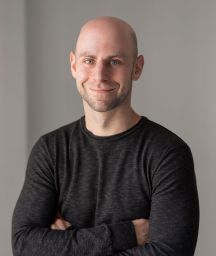 Adam Grant
Adam GrantAdam Grant is an organizational psychologist who has been recognized as one of the world’s 10 most influential management thinkers and was named one of Fortune’s 40 under 40.
He is the #1 New York Times bestselling author of 5 books that have sold millions of copies and been translated into 45 languages: Think Again, Give and Take, Originals, Option B, and Power Moves. His books have been named among the year’s best by Amazon, Apple, the Financial Times, and the Wall Street Journal. His viral piece on languishing was the most-read New York Times article of 2021 and the most-saved article across all platforms.
Adam hosts WorkLife, a chart-topping TED original podcast. His TED talks on languishing, original thinkers, and givers and takers have been viewed more than 30 million times. He has received a standing ovation at TED and was voted the audience’s favorite speaker at The Nantucket Project. His speaking and consulting clients include Google, the NBA, Bridgewater, and the Gates Foundation. He writes on work and psychology for the New York Times, has served on the Defense Innovation Board at the Pentagon, has been honored as a Young Global Leader by the World Economic Forum, and has appeared on Billions. He has more than 6 million followers on social media and features new insights in his free monthly newsletter, GRANTED.
Links and SourcesApple Podcasts – Stitcher – RSS – Google Podcasts – Soundcloud – Simplecast – Amazon Music – Audible – Spotify
May 4, 2023
YANSS 258 – What sightseeing among the stars and under alien skies would truly be like according to astronomer Phil Plait
In this episode, astronomer and world-famous science communicator Phil Plait joins us to discuss his new book, Under Alien Skies, in which he describes what it would be like (through human eyes and real physical experiences) to actually travel to Saturn, Mars, asteroids, and distant stars. Also, we discuss the recent surge in UFO sighting as well as his famous talk at The Amazing Meeting more than a decade ago in which he asked all science communicators and critical thinkers to approach those who believe in pseudoscience with empathy and respect instead of scorn and vitriol. And, we run through the history of James Randi’s popularization of the big-S Skeptic movement.
Listen on Apple Listen on Spotify Listen on GoogleStitcher – RSS – Soundcloud – Simplecast – Amazon Music – Audible
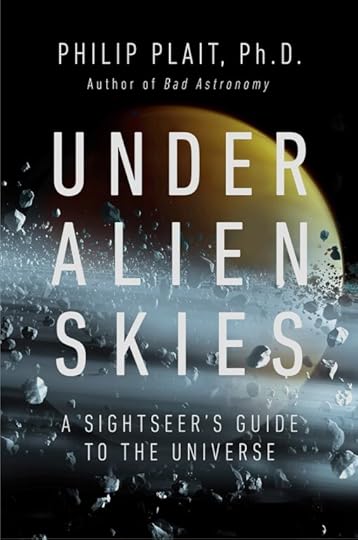
— OFFICIAL PREVIEW OF THE BOOK–
A rip-roaring tour of the cosmos with the Bad Astronomer, bringing you up close and personal with the universe like never before.
Have you ever wondered what it would be like to travel the universe? How would Saturn’s rings look from a spaceship sailing just above them? If you were falling into a black hole, what’s the last thing you’d see before getting spaghettified? While traveling in person to most of these amazing worlds may not be possible—yet—the would-be space traveler need not despair: you can still take the scenic route through the galaxy with renowned astronomer and science communicator Philip Plait.
On this lively, immersive adventure through the cosmos, Plait draws ingeniously on both the latest scientific research and his prodigious imagination to transport you to ten of the most spectacular sights outer space has to offer. In vivid, inventive scenes informed by rigorous science—injected with a dose of Plait’s trademark humor—Under Alien Skies places you on the surface of alien worlds, from our own familiar Moon to the far reaches of our solar system and beyond. Try launching yourself onto a two-hundred-meter asteroid, or stargazing from the rim of an ancient volcano on a planet where, from the place you stand, it is eternally late afternoon. Experience the sudden onset of lunar nightfall, the disorientation of walking—or, rather, shuffling—when you weigh almost nothing, the irritation of jagged regolith dust. Glimpse the frigid mountains and plains of Pluto and the cake-like exterior of a comet called 67P. On a planet trillions of miles from Earth, glance down to see the strange, beautiful shadows cast by a hundred thousand stars.
For the aspiring extraterrestrial citizen, casual space tourist, or curious armchair traveler, Plait is an illuminating, always-entertaining guide to the most otherworldly views in our universe.
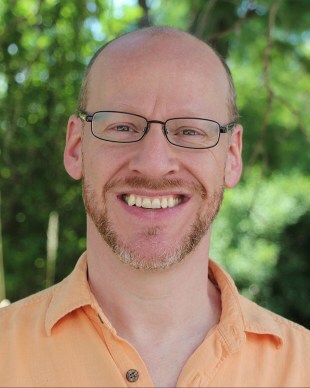 Phil Plait
Phil PlaitPhilip Plait, PhD, is an astronomer, sci-fi dork, TV documentary talking head, and all-around science enthusiast. The author of Under Alien Skies, Bad Astronomy, and Death from the Skies!, he writes the Bad Astronomy newsletter and lives in Colorado.
Apple Podcasts – Stitcher – RSS – Google Podcasts – Soundcloud – Simplecast – Amazon Music – Audible – Spotify
April 17, 2023
YANSS 257 – The science behind why we so often talk past each other without realizing it and how it impacts everything from politics to penguins
Is a hotdog a sandwich? Well, that depends on your definition of a sandwich (and a hotdog), and according to the most recent research in cognitive science, the odds that your concept of a sandwich is the same as another person’s concept are shockingly low.
In this episode we explore how understanding why that question became a world-spanning argument in the mid 2010s helps us understand some of the world-spanning arguments vexing us today.
Our guest is psychologist Celeste Kidd who studies how we acquire and conceptualize information, form beliefs around those concepts, and, in general, make sense of the torrent of information blasting our brains each and every second. Her most recent paper examines how conceptual misalignment can lead to semantic disagreements, which can lead us to talk past each other (and get into arguments about things like whether hotdogs are sandwiches).
Stitcher – RSS – Soundcloud – Simplecast – Amazon Music – Audible
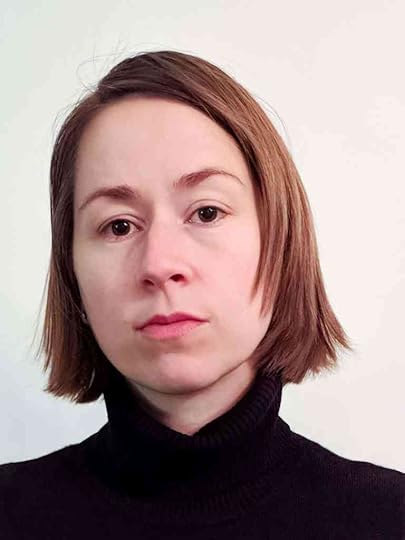 Celeste Kidd
Celeste KiddCeleste Kidd is a psychologist at Berkeley. She is a cognitive scientist and developmental psychologist who is well known for her research on human curiosity and certainty how human brains develop knowledge.
Her lab, the Kidd Lab, studies the processes involved in knowledge acquisition, especially in young children, using a combination of computational and behavioral methods.
The Kidd Lab employs a range of methods, including eye-tracking and touchscreen testing with human infants, in order to show how learners sample information from their environment and build knowledge gradually over time.
Celeste Kidd’s work has been published in PNAS, Neuron, Psychological Science, Developmental Science, and elsewhere. Her lab has received funding from NSF, DARPA, Google, the Jacobs Foundation, the Human Frontiers Science Program, and the Templeton Foundation. She is a recipient of the Hellman Fellows award, the American Psychological Science Rising Star designation, the Glushko Dissertation Prize in Cognitive Science, and the Cognitive Science Society Computational Modeling Prize in Perception/Action.
Kidd was also named as one of TIME Magazines 2017 Persons of the Year as one of the “Silence Breakers” for her advocacy for better protections for students against sexual misconduct.
Apple Podcasts – Stitcher – RSS – Google Podcasts – Soundcloud – Simplecast – Amazon Music – Audible – Spotify
April 2, 2023
YANSS 256 – Why Americans must change their minds about their ability to change other Americans’ minds
This is the third episode in a three-part series about how to have difficult conversations with people who see the world differently, how to have better debates about contentious issues, and how to ethically and scientifically persuade one another about things that matter – in short, this is a three-part series about How Minds Change (which is also the title of my new book).
There seems to be a movement afoot, a new wave of nonfiction about how to reduce all this argumentative madness and epistemic chaos. I want to boost everyone’s signal on this issue, so I thought it would be nice to collaborate instead of compete, since that’s part of what we are all proselytizing with these books.
So this episode’s guest is Anand Giridharadas, the author of The Persuaders – a book about activists, politicians, educators, and everyday citizens who are on the ground working to change minds, bridge divisions, and fight for democracy.
Listen on Apple Listen on Spotify Listen on GoogleStitcher – RSS – Soundcloud – Simplecast – Amazon Music –
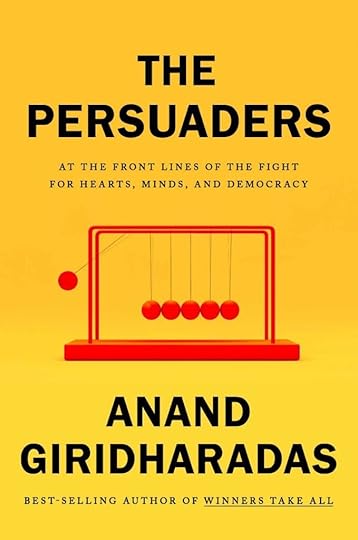
— OFFICIAL PREVIEW OF THE BOOK–
The Persuaders is a stunning insider account of activists, politicians, educators, and everyday citizens who are on the ground working to change minds, bridge divisions, and fight for democracy.
Many Americans have grown alienated from an idea at the heart of democratic theory: that you change things by changing minds—by persuading.
This challenge to persuasion has taken myriad forms. Social movements that need to grow to win have often seemed to devote more energy to keeping people out than pulling people in. Political campaigns frequently receive advice to focus on mobilizing sympathetic voters more than winning over skeptics. People have watched as tens of millions of their loved ones mentally disappear into online rabbit holes and cults, but little organized effort is made to bring them back or protect future victims. Leaders who attempt outreach have been attacked by their own as sellouts, chided for centering those who would never ally with them anyway over those who have long had their back, if not their attention.
The tendency to write off is rooted in the assumption that differences of identity are unbridgeable, that people are too invested in their privileges and interests to change, that the failure to achieve change in the past predicts failure in the future, that people and their opinions are monolithic and strong rather than complicated and fragile, and therefore the purpose of politics is to protect yourself from Others and galvanize your own instead of trying to reach across.
In the change-making circles I had begun to follow, the political culture of the write-off had made itself strongly felt. It had helped to open an ever-widening, seemingly unsustainable gap between the ambitions for structural, material change and the utter pessimism about individual people changing. How could social transformation come to pass when so many, even those most thirsting to change things, had written off the very possibility of changing people’s minds?
The stakes of this writing off were high: some of the most dangerous and antidemocratic movements of our time had managed, in spite of those features, to make their causes appear welcoming and make newcomers feel at home, whereas some of the most righteous, inclusive, and just movements gave many the feeling of being inaccessible, intractable, and alienating.
I became drawn to a group of activists, organizers, politicians, educators, and others in these change-making circles who dissented from the great write-off and were seeking another way.
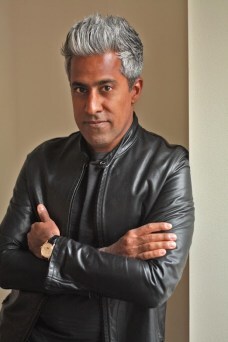 Anand Giridharadas
Anand GiridharadasAnand Giridharadas is a writer. He is the author of Winners Take All, The True American, India Calling, and now The Persuaders. A former foreign correspondent and columnist for The New York Times for more than a decade, he has also written for The New Yorker, The Atlantic, and Time, and he is the publisher of the newsletter The.Ink. He has spoken on stages around the world and taught narrative journalism at New York University. He is a regular on-air political analyst for MSNBC.
Apple Podcasts – Stitcher – RSS – Google Podcasts – Soundcloud – Simplecast – Amazon Music – – Spotify
March 19, 2023
YANSS 255 – How to improve our lives (and the world) by improving the quality of our disagreements
This is the second episode in a three-part series about how to have difficult conversations with people who see the world differently, how to have better debates about contentious issues, and how to ethically and scientifically persuade one another about things that matter – in short, this is a three-part series about How Minds Change (which is also the title of my new book).
There seems to be a movement afoot, a new wave of nonfiction about how to reduce all this argumentative madness and epistemic chaos. I want to boost everyone’s signal on this issue, so I thought it would be nice to collaborate instead of compete, since that’s part of what we are all proselytizing with these books.
So this episode’s guest is Bo Seo, the author of Good Arguments – a book about how he became a world debate champion in which he not only teaches us how to apply what he has learned to everyday life, but imagines communities built around, not despite, constant arguing and disagreement.
Seo says that a political life without constant disagreement would be impoverished. As he puts it, quote, “Nations are, at their best, evolving arguments. As he writes, “In a liberal democracy, good arguments are not what societies should do but also what they should be.” See believes that on well curated, well moderated platforms, ones that value good faith interactions, arguing and disagreement would flip from being catalysts for polarization to the very engine of depolarization and change. In the interview, he not only tells us how to defend ourselves against bad arguments, but explains how in his mind a great democracy isn’t a place where everyone agrees and sees eye-to-eye, but one where we work to have better quality disagreements.
Listen on Apple Listen on Spotify Listen on GoogleStitcher – RSS – Soundcloud – Simplecast – Amazon Music – Audible
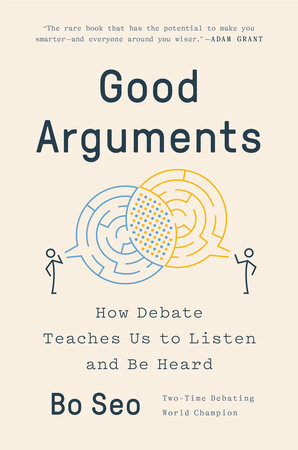
— OFFICIAL DESCRIPTION OF THE BOOK–
Two-time world champion debater and former coach of the Harvard debate team, Bo Seo tells the inspiring story of his life in competitive debating and reveals the timeless secrets of effective communication and persuasion
When Bo Seo was 8 years old, he and his family migrated from Korea to Australia. At the time, he did not speak English, and, unsurprisingly, struggled at school. But, then, in fifth grade, something happened to change his life: he discovered competitive debate. Immediately, he was hooked. It turned out, perhaps counterintuitively, that debating was the perfect activity for someone shy and unsure of himself. It became a way for Bo not only to find his voice, but to excel socially and academically. And he’s not the only one. Far from it: presidents, Supreme Court justices, and CEOs are all disproportionally debaters. This is hardly a coincidence. By tracing his own journey from immigrant kid to world champion, Seo shows how the skills of debating—information gathering, truth finding, lucidity, organization, and persuasion—are often the cornerstone of successful careers and happy lives.
Drawing insights from its strategies, structure, and history, Seo teaches readers the skills of competitive debate, and in doing so shows how they can improve their communication with friends, family, and colleagues alike. He takes readers on a thrilling intellectual adventure into the eccentric and brilliant subculture of competitive debate, touching on everything from the radical politics of Malcom X to Artificial Intelligence. Seo proves beyond a shadow of a doubt that, far from being a source of conflict, good-faith debate can enrich our daily lives. Indeed, these good arguments are essential to a flourishing democracy, and are more important than ever at time when bad faith is all around, and our democracy seems so imperiled.
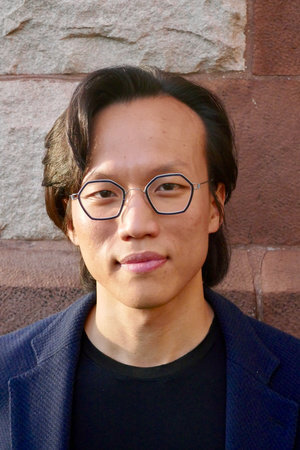 Bo Seo
Bo SeoBo Seo is a two-time world champion debater and a former coach of the Australian national debating team and the Harvard College Debating Union. One of the most recognized figures in the global debate community, he has won both the World Schools Debating Championship and the World Universities Debating Championship.
Bo has written for The New York Times, The Atlantic, CNN, and many other publications. He has worked as a national reporter for the Australian Financial Review and has been a regular panelist on the prime time Australian debate program, The Drum.
Bo graduated from Harvard University and received a master’s degree in public policy from Tsinghua University. He is currently a Juris Doctor candidate at Harvard Law School.
Apple Podcasts – Stitcher – RSS – Google Podcasts – Soundcloud – Simplecast – Amazon Music – Audible – Spotify
March 6, 2023
YANSS 254 – How to have productive conversations in a polarized political environment
This is the first episode in a three-part series about how to have difficult conversations with people who see the world differently, how to have better debates about contentious issues, and how to ethically and scientifically persuade one another about things that matter – in short, this is a three-part series about How Minds Change (which is also the title of my new book).
There seems to be a movement afoot, a new wave of nonfiction about how to reduce all this argumentative madness and epistemic chaos. I want to boost everyone’s signal on this issue, so I thought it would be nice to collaborate instead of compete, since that’s part of what we are all proselytizing with these books.
So this episode’s guest is Mónica Guzmán, the author of I Never Thought of It That Way – a book with very practical advice on how to have productive conversations in a polarized political environment via authentic curiosity about where people’s opinions, attitudes, and values come from. In short, it’s about how to reduce polarization and learn from those with whom we disagree by establishing the sort of dynamic in which they will eagerly learn from us as well.
Listen on Apple Listen on Spotify Listen on GoogleStitcher – RSS – Soundcloud – Simplecast – Amazon Music – Audible

— OFFICIAL DESCRIPTION OF THE BOOK–
We think we have the answers, but we need to be asking a lot more questions. Journalist Mónica Guzmán is the loving liberal daughter of Mexican immigrants who voted—twice—for Donald Trump. When the country could no longer see straight across the political divide, Mónica set out to find what was blinding us and discovered the most eye-opening tool we’re not using: our own built-in curiosity.
Partisanship is up, trust is down, and our social media feeds make us sure we’re right and everyone else is ignorant (or worse). But avoiding one another is hurting our relationships and our society. In this timely, personal guide, Mónica, the chief storyteller for the national cross-partisan depolarization organization Braver Angels, takes you to the real front lines of a crisis that threatens to grind America to a halt—broken conversations among confounded people.
She shows you how to overcome the fear and certainty that surround us to finally do what only seems impossible: understand and even learn from people in your life whose whole worldview is different from or even opposed to yours.
Drawing from cross-partisan conversations she’s had, organized, or witnessed everywhere from the echo chambers on social media to the wheat fields in Oregon to raw, unfiltered fights with her own family on election night, Mónica shows how you can put your natural sense of wonder to work for you immediately, finding the answers you need by talking with people—rather than about them—and asking the questions you want, curiously.
Whether you’re left, right, center, or not a fan of labels: If you’re ready to fight back against the confusion, heartbreak, and madness of our dangerously divided times—in your own life, at least—Mónica’s got the tools and fresh, surprising insights to prove that seeing where people are coming from isn’t just possible. It’s easier than you think.
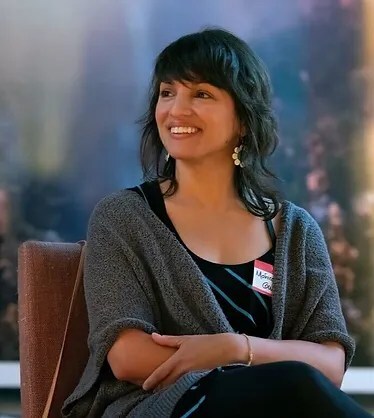 Mónica Guzmán
Mónica Guzmán Mónica Guzmán is Senior Fellow for Public Practice at Braver Angels, a nonprofit working to depolarize America, founder and CEO of Reclaim Curiosity, an organization working to build a more curious world; and author of I Never Thought Of It That Way: How to Have Fearlessly Curious Conversations in Dangerously Divided Times.
Moni was a 2019 fellow at the Henry M. Jackson Foundation, where she studied social and political division, and a 2016 fellow at the Nieman Foundation for Journalism at Harvard University, where she studied how journalists can better meet the needs of a participatory public. Her work has been featured in The New York Times, the Glenn Beck Podcast, Reader’s Digest, BookTV, and EconTalk, and she is an advisor for Starts With Us and the Generations Over Dinner project.
Before committing to the project of helping people understand each other across the political divide, Mónica cofounded the award-winning Seattle newsletter The Evergrey and led a national network of groundbreaking local newsletters as VP of Local for WhereBy.Us.
She was named one of the 50 most influential women in Seattle, served twice as a juror for the Pulitzer Prizes, and plays a barbarian named Shadrack in her besties’ Dungeons & Dragons campaign.
Apple Podcasts – Stitcher – RSS – Google Podcasts – Soundcloud – Simplecast – Amazon Music – Audible – Spotify
David McRaney's Blog
- David McRaney's profile
- 582 followers



